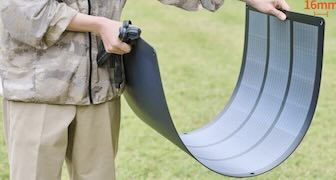TOKYO, Feb 09 (News On Japan) - Satoshi Takamatsu, a former advertising creator turned photographer, aged 60, has revealed plans to become the third Japanese civilian to undertake a long-term stay at the International Space Station (ISS).
During a press conference held on the 8th, Takamatsu, who previously worked as an advertising creator for the major advertising agency Dentsu and now a photographer, announced his contract with an American private company for a 30-day stay on the International Space Station.
Takamatsu has a history of engaging in space-related projects, including directing the space commercial "NO BORDER" for Nissin Cup Noodles and participating in an eight-month astronaut training program in Russia.
Leveraging these experiences, he aims to challenge himself with photography using state-of-the-art ultra-high-definition cameras in space.
Takamatsu shared his vision, "Going to space to see Earth might be a step towards human evolution, not just for a select few but for everyone around the world. It could lead to societal, political, and human advancement."
He plans to undergo further training and fundraise, hoping to embark on his space journey as early as the end of next year.
Source: ANN















